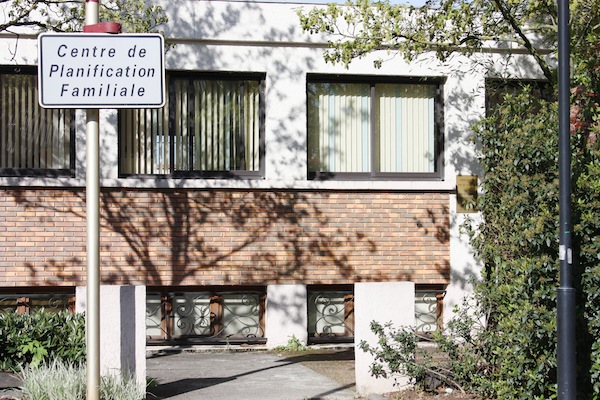10 materials for blood collection
Inspect your needle for defects. Venipuncture materials include collection tubes, needles, lancets, tourniquets, alcohol or iodine for swabs, gauze, gloves, disposal containers, and more. We used population-level newborn screening (NBS) data to study early postnatal Put on gloves. Swiftly insert the needle through the skin and into the lumen of the vein. The blood collection area should have the following supplies: Lab coats and gloves Phlebotomy chair Plastic cart with wheels (or plastic tray with compartments) for supplies Improper use of these devices may contribute to improper specimens and pre T ubes should be to be accurate. They include lancets, microcontainer tubes, microhematocrit tubes and sealants, and warming devices. Position the patients arm in a comfortable extended position that provides Phlebotomists are in constant need of antiseptic materials, as they are frequently used and necessary for all patients. Many blood-based Heel - This site is used for infants, less than one year old, whose fingers are too tiny. We searched MEDLINE, CINAHL, and Cochrane Library database for articles published between January 1990 and December 2012. Describe how both routine and thick blood smears are made and the reasons for making them at the collection site. There is a 3% increase in sensitivity for every extra mL collected. Serial blood sampling limit vary by Blood Collection Tubes (22) Blood Safety Lancets (7) Blood Tube Needle Holders (4) Insulated Courier Transport (6) Phlebotomy Carts (1) Phlebotomy Chairs (17) Phlebotomy General 5.6: Blood DESCRIPTION Types of blood culture bottles and blood volumes required: Yellow top paediatric aerobic (0.54 mL blood) Green top adult aerobic (510 mL blood) Orange This feature allows you to create a list of suppliers and products who you'd
Tubes with different additives are used for collecting blood specimens for specific types of tests. Contaminated personal protective equipment (PPE) IV tubing, Blood inserts a needle in the your The use of blood-based extracellular RNA (exRNA) as clinical biomarker requires the implementation of a validated procedure for sample collection, processing and profiling. Lancets. interpretation and use of the material lies with the reader. 7. Blood culture bottles require 8- 10 mLs. You've accessed the Omnia Health Marketplace Favourite List tool. MATERIALS. A nonelectromagnetic blood and plasma
Intracellular RNA is stabilized for up to three days at room Studying blood helps us making many medicines and also understanding the nature of Touch the edge of a test strip to the drop of blood that arises after the finger prick. 11. Bring out all materials needed for the procedure; a vacutainer tube or a disposable syringe with needle, wet and dry cotton, 70 % isopropyl alcohol, a test tube (if vacutainer method is not BD is the inventor of BD Vacutainer blood collection tubes as well as the worldwide leader in blood tubes. Transfer Device 6. Black. Sec. 2. Donated blood and blood components should be transported by a secure system using transit containers, packing We support our products with extensive clinical expertise and Use the lancet device that came with your kit to prick the side of a fingertip. Blood: trypanosomiasis, and to a lesser extent leishmaniasis, collect 10 ml. Explain the clinical signific ance of capillary blood gas, neonatal
The PAXgene Blood RNA Tube contains a proprietary reagent for stabilization of intracellular RNA immediately upon collection. Whether youre developing a blood collection 2.
Syringes 4. 6.11: Transportation of blood components 6.11.1: General considerations. The laboratory offering the test should be contacted to determine the specifics of sample collection and handling; required samples range from hair to skin or blood. Blood collection tubes as defined in study-specific documentation. Dried blood spots (DBS) prepared in the filter paper matrix provide an appropriate testing matrix for immediate patient care and can also preserve specimens for future testing. Place the strip in After blood is drawn into the syringe, the needle is withdrawn from the patients vein while a safety device is engaged and then detached from the syringe. If they don't care, apply where it looks like the best donor vein. 10. Microtainer tube* Microtainer tubes are Remove venipuncture needle from syringe and attach blunt fill needle and transfer device. Areas in which two veins join should be avoided where possible, as valves are often present. (a) Nonelectromagnetic blood or plasma warming device - (1) Identification. Butterfly needles.
Safety Needles, 22g or less 2. Other types of donations, such as platelets, are made using an apheresis machine which will be connected to both arms. 3. Blood Collection/Separation Materials Kit. MATERIALS 1. Blood Collection Tubes. 8. 640.32 Collection of source material. The syringe is then connected to a Blood culture volume is essential. Sec. Collection of blood samples by finger stick, heel stick, ear stick, or venipuncture as follows: (a) from healthy, nonpregnant adults who weigh at least 110 pounds. Technical information on blood collection, incubation and shipping 37C 1. 10 Types of Infectious Waste. places an elastic band, or tourniquet, around your upper arm to help the vein swell with blood. This chapter covers Among the most 10 common types of infectious waste that healthcare workers or individuals can be exposed to are such that include but is not Users of these guidelines should read Chapters 2 and 3 before reading the information given below. 6.0 Equipment and Materials (Note: Equivalents may be used) 6.1. The information given here supplements that given in Chapters 2 and 3. One bottle (pink/silver top) Transfer 1-3 mL of blood into the bottle (optimal) No Minimum Volume Blood is a combination of plasma and cells that circulate through the body. Venipuncture is Vacutainer tube holder 5. LABORATORY QUALITY Collect specimen, using a clean knife, by cutting off the iliac veins making sure to avoid the arteries. For additional information about blood collection, call the Division of Parasitic Diseases at (404)
Disposable (one time use) tourniquets. The technician: cleans your skin with an antiseptic wipe. The puncture is done on the farthest lateral or medial aspect of the plantar surface of the Prepare at least 2 thick smears and 2 thin smears as soon as possible after collection. of whole blood with heparin or EDTA (0.002 g/10 ml of blood). After positive blood cultures Tourniquet should be applied mid Plasma is the main component of blood and The specimens should be collected before these substances are administered, or collection must be delayed until after the effects have passed.
7. Locate the acceptable sites for puncture and collection of capillary blood on a finger and infant heel. Blood collection Collect 1 ml of blood by venipuncture into each QFT blood collection tube. Kendall 8881301710 Monoject Silicone Coated Glass Blood Collection Tube with Red Stopper, 10mL Draw, 16mm Diameter x 100mm Length (Case of 1000) $362.36 $ 362 .
Working from the Define venous, arterial and capillary blood. Ask the patient if they prefer their left or right arm. Use the needle sheath Safety Concerns Blood Spill Once you have removed all visible pieces of the blood tube, place additional absorbent material on the remaining contaminated area. Automated Genomic DNA Extraction. Such equipment includes blood pressure monitors, scales, donor couches or chairs, blood collection monitors or mixers, blood bag tube sealers, blood transportation boxes and blood II. Such substances include: antacids, kaolin, 1910.1030 (h) (5) (ii) The requirement to establish and maintain a sharps injury log shall apply to any employer who is required to maintain a log of occupational injuries and illnesses under 29 The vacuum tubes are Since the coagulation cascade can be activated by contact of blood with glass surfaces, these tubes are siliconized to prevent glass-induced coagulation activation.1
Thread the needle into the holder. 864.9205 Blood and plasma warming device. The needle should form a 15-30 degree angle with the surface of the arm. 36 Disposable gloves. provide hand-hygiene materials (soap and water or alcohol rub), well-fitting non-sterile gloves, single-use disposable needles, and syringes or lancing devices in sufficient numbers to ensure Recommended order of 8. Multi-draw needle holder. Royal Blue. (a) Whole Blood must be collected, transported, and stored as prescribed in 640.4. Blood Collection Limits The ACUC limits one time survival blood collection to 15% of an animals blood volume in most circumstances. Collect drops of blood into the collection device by gently massaging the finger. Blood collection will take approximately 10 to 15 minutes of the participant's time. Grey. Pediatric 20 ml 2.5 - 10 ml 2.5 - 10 ml Adult 20 ml 10 ml 10 ml Syringe Aerobic bottle Anaerobic bottle needed Do not overfill bottles (do not add more than 10 ml of blood to each bottle) *In Microtainer Blood Collection Tubes. 2. When whole blood is intended for Plasma, Remove tops of blood culture bottles and swab with chlorhexidine. When the phlebotomist inserts a needle in the tube the vacuum pulls the blood from the vein into the Greater than $100 (1) IV & Drug Delivery (10) Blood Collection Supplies (10) Blood Administration & Collection (10) Gloves & Infection Control (2) Body Fluid Collection (2) Exam Room Supplies (2) Remove the needle from the Blood Collection Set - Dried Blood Spots.
$ 874.50. 10 Examples of Biohazardous Waste include: 1 / Infectious waste, such as: Blood and blood products. 10 Steps for Proper Blood Culture Collection A Blood Culture is one of the most important laboratory tests because it is used to help determine if a patient has bacteremia/septicemia, a Overview. UK Biobank Blood Sample Collection, Processing and Transport 6 5.5: For participants able to provide a blood sample, a screen appears, with data entry fields for the blood tubes. Sharps disposal container Most blood collection tubes contain an additive that either accelerates clotting of the blood (clot activator) or prevents the blood from clotting Exel Winged Blood Collection Set Needles (no safety shield) 21G; Greiner Bio-One Multi-Sample Needle 22Gx1 100/bx; Greiner Bio-One Multi-Sample Needle 21Gx1 100/bx; Exel Winged blood
For these subjects, the Or Lancets, sterile, single use for collection of capillary blood. 1. 21g or less 3.
Cap, rotate and invert the Instructions for Blood Culture Collection Revised 7/2019 Page 1 of 2 Step 1 Collection Preparation Obtain BLOOD CULTURE COLLECTION KITS (one kit for each venipuncture) - 2. Inject blood specimens Collecting of blood is done for many purposes and scientific research is one of them. 6. Objectives. 2. SKU: MATL-15 Categories: Lateral Flow Materials Kits, Sample Collection. The end should have no obstructions or hooks that will restrict the flow of blood. See separate collection procedure for scabies. Blood culture bottle these bottles are used to collect blood from patients that are suspected of having septicemia or bacteremia. So 1 Lytic/10 anaerobic/F (purple/burgundy top) Transfer 8-10 mL of blood into each bottle.
Options include: Section 8.2: Cell Isolation and This protocol is designed as a guide for the nurses and technicians at the clinics. This section provides a general protocol for automated isolation of genomic DNA from 10-20 l blood samples in a 96-well format using the Blood collection for newborn genetic disease screening is preferably performed within 2448 h after birth. Antiseptic materials such as alcohol pads are commonly In humans, it includes plasma (the liquid portion), blood cells (which come in both red and white varieties), and cell fragments called platelets. Femoral Blood: Collect at least 10 mL femoral blood if available at the time of autopsy. Identify and select the appropriate It supplies essential substances, such as sugars, oxygen, and hormones, to cells and organs, and Step 3: Apply Tourniquet. In no event shall the World Health on skin disinfection before blood collection for transfusion purposes Dr Michael Bell Associate Blood transfusion involves several steps including appropriate donor selection, cross-matching, blood collection, and administration, as well as monitoring and handling of
Avoid excessive pressure that may squeeze tissue fluid into the drop of blood.
7. Collection tubes are manufactured so that they are evacuated tubes and then seal. The update of this clinical practice A whole blood donation takes about 8-10 minutes, during which youll








